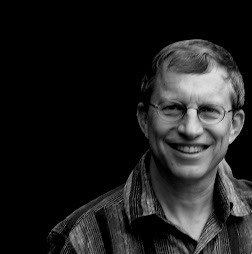Have you ever met a scientist who was an agnostic or atheist? Chances are high that such a person may have seemed intimidating when it came to sharing faith in God because in this person’s view, religion is essentially unverifiable superstition. Scientific naturalists who suppose “science is the paradigm of truth and rationality,” believe in scientism.*
There are basically two kinds of scientism—strong and weak. Those who believe in strong scientism advocate that something is true only if it is a scientific claim that was successfully tested and used in compliance with correct scientific methodology. Therefore, apart from scientific truths, there are no truths. Weak scientism postulates that truths can exist apart from science but gives science the overall position of authority in determining learning.
Meditation
Proverbs
You and I may not be able to prove scientifically that God made us, offered a miraculous solution to our sin and is able to provide us eternal life in His presence. But that is insufficient basis to doubt what you believe. Belief in God is not based on science, it is based on faith. “Now faith is the reality of what is hoped for, the proof of what is not seen”—Hebrews 11:1. Furthermore, scientism is self-refuting.
Strong scientism’s very claim that only scientific propositions are true and valid is not scientific but rather a philosophical proposition about science. As J.P. Moreland notes, “Propositions that are self-refuting do not just happen to be false; they are necessarily false—it is not possible for them to be true.” Similarly, weak scientism’s position that scientific propositions have “greater intellectual authority than those of other fields” is rendered bogus by the simple fact that this would mean scientific conclusions are more certain than the philosophical presuppositions used to validate them. The existence of truth by itself is a philosophical and not scientific presupposition.
We know that there are true beliefs in fields outside of science. Just ask a strong scientist if she believes as truth that it is wrong to torture her so she cannot practice her craft! I heard a scientist say “there is no God” but just exactly what science does he base that on? I watched a scientist measure life but find no meaning. I know scientists that believe that God is real and choose to accept the Son God sent to save mankind. I count as friends scientists who share how awesome it is to have the Holy Spirit inside them. The proof is not in the science, the science is in the proof. The question is, “who really understands the truth about Truth?”
Could it be the best explanation for our pumping hearts and thinking minds, hearing ears and seeing eyes, is a Creator who should be appreciated best by science
Inspiration
There is nothing in science which teaches the origin of anything at all.—Lord Kelvin
*Information about scientism taken from J.P. Moreland’s article, How Should a Christian Relate to a Scientific Naturalist? in The Apologietics Study Bible ©2007 by Holman Bible Publishers


